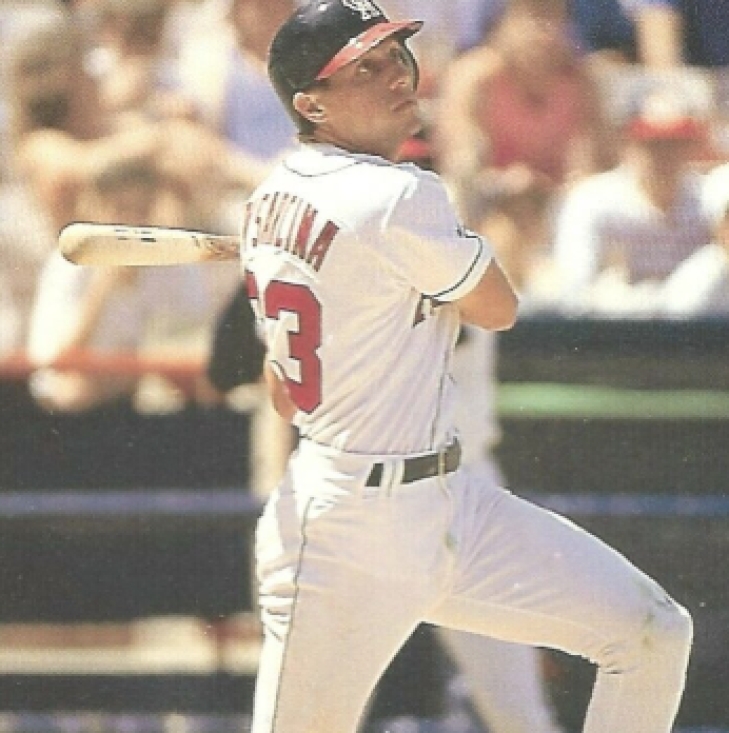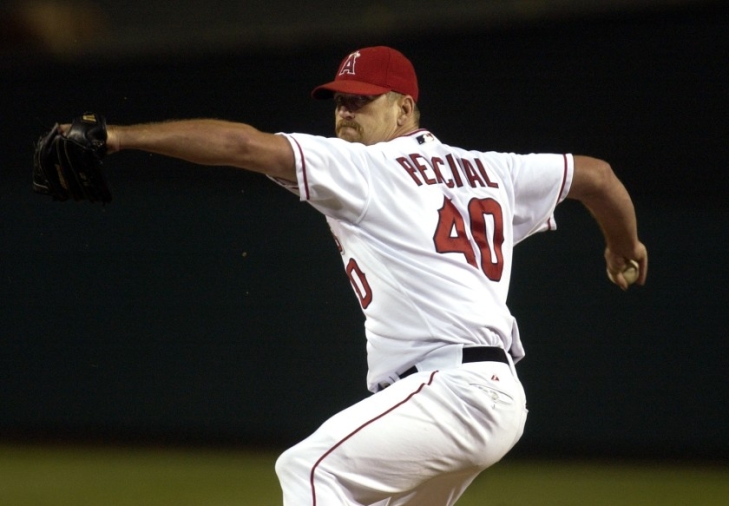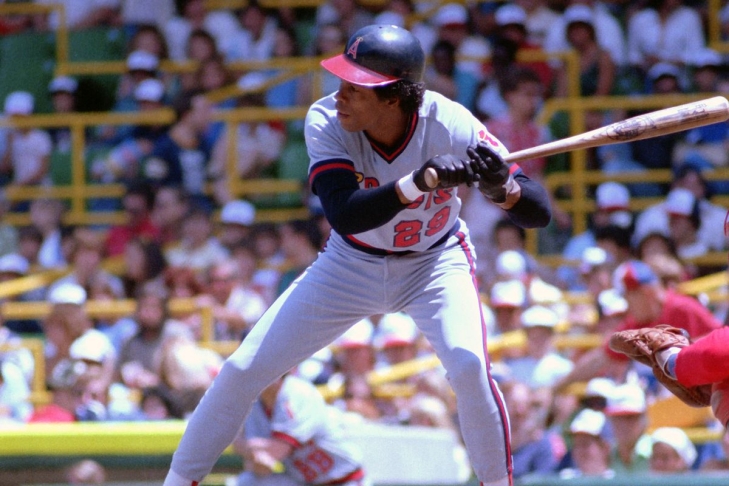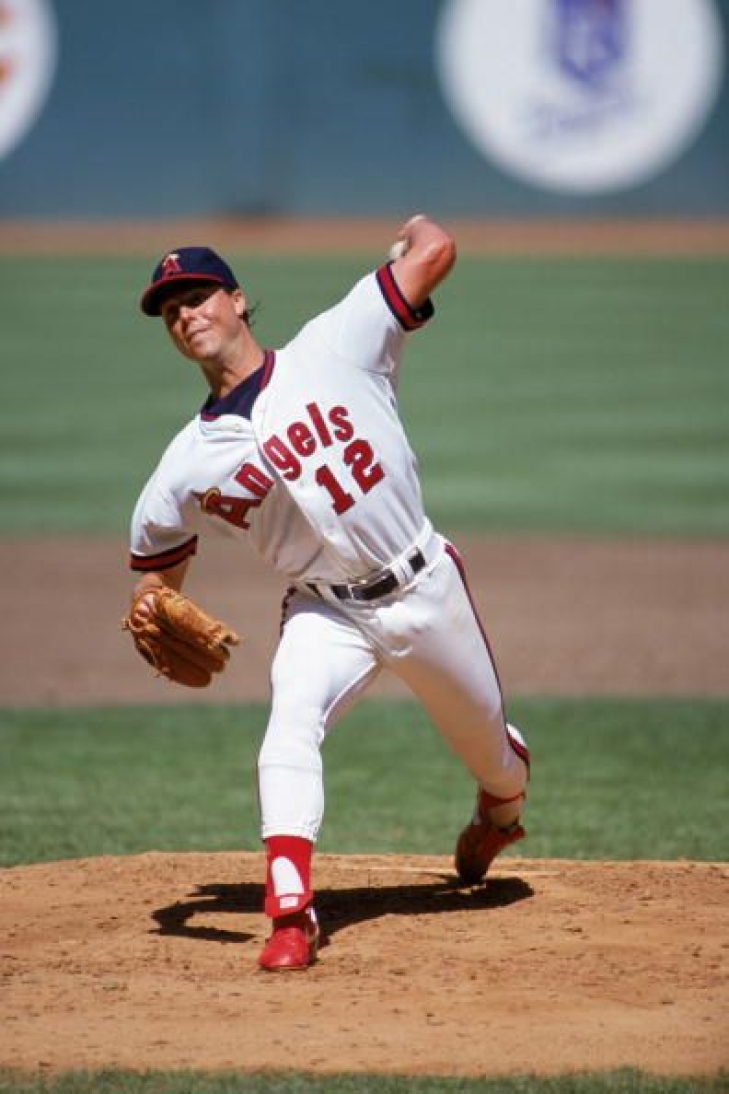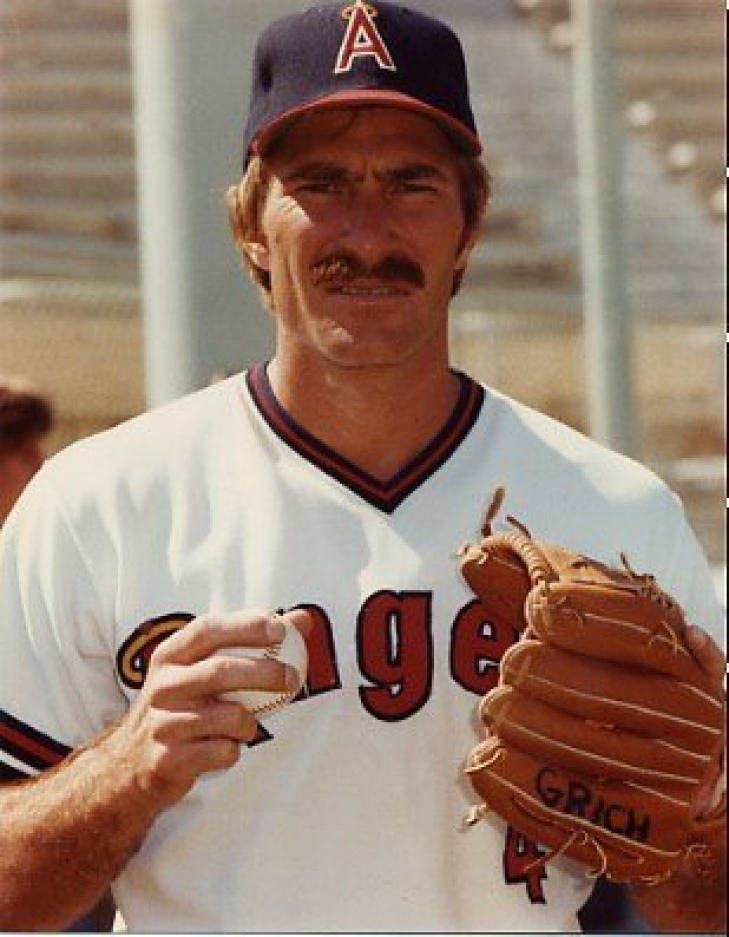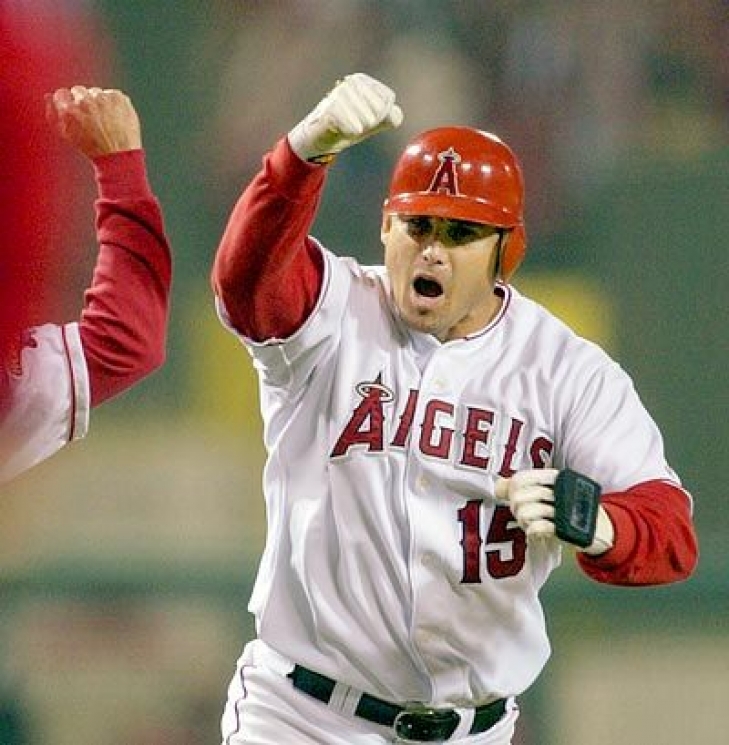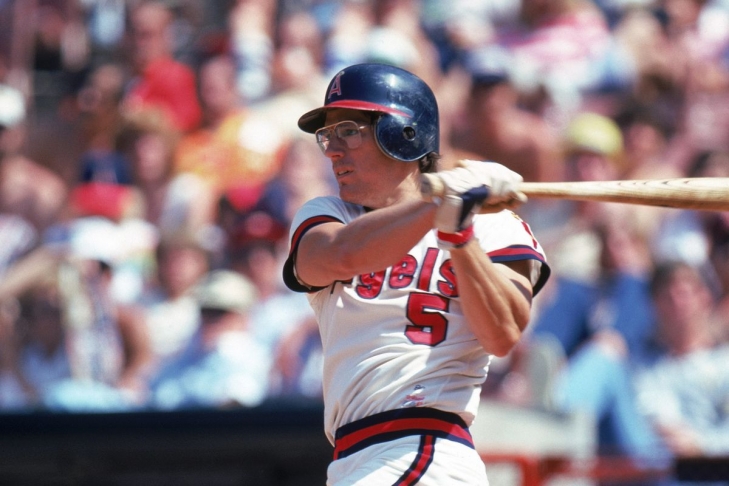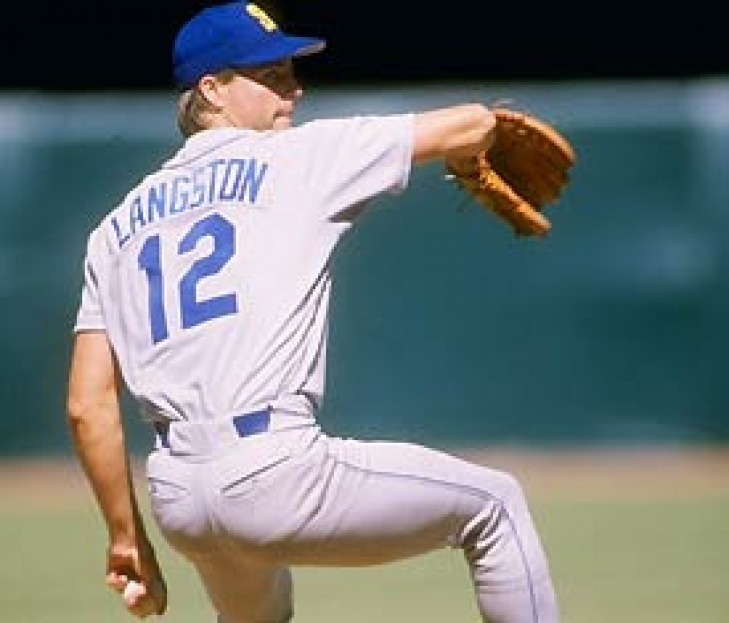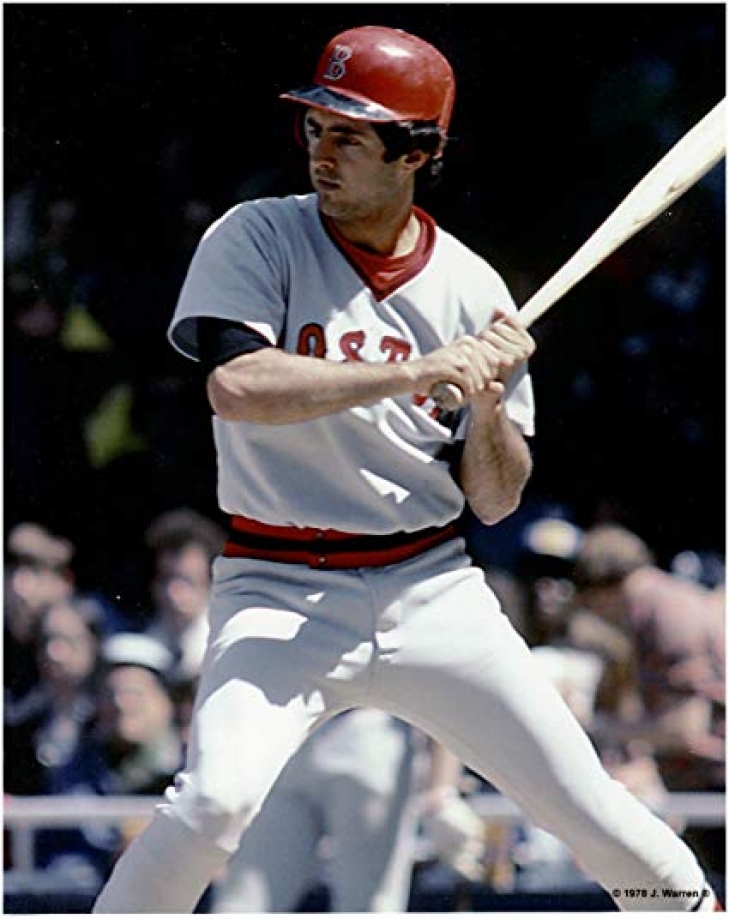49. Gary DiSarcina
Playing for the Angels his entire career for the Angels, Gary DiSarcina was not known for his natural ability, but for his leadership and dedicated play on and off the field.
Debuting for California in 1989, DiSarcina became the Angels primary Shortstop in 1992, and even represented the Halos in the 1995 All-Star Game. He was not a power hitter (he only had 28 career Home Runs), but did collect 966 Hits over his career that also provided solid defense.
19. Troy Percival
Troy Percival debuted in MLB with the California Angels in 1995, where he appeared in 62 Games in late relief, finishing 16 Games. Percival was fourth in Rookie of the Year voting, and it was a springboard to becoming the Angels’ closer in 1996.
Percival was the primary reliever for the Halos from '96 to 2004, going to four All-Star Games, and had at least 30 Saves in all of those years except for 1997. The Angels had put it all together in 2002, with Percival closing seven games in the playoffs.
With Francisco Rodriguez waiting in the wings, Percival left as a Free Agent for Detroit after the 2004 campaign. Percival recorded 316 of his 368 Saves with the Angels.
23. Rod Carew
Rod Carew was one of, if not the greatest hitter in Minnesota Twins history, having won the 1977 MVP and was an All-Star in all twelve of his seasons there. The Twins traded him west to California in 1979, and while Carew was not clearly declining, he was still one sweet hitter.
Carew, who won six Batting Titles and four OBP Titles as a Twin, batted over .300 in his first five seasons in California, with all of those years showing an OBP over .380. As an Angel, he collected his 3,000th Hit, and 968 of his career 3,053 Hits came on the West Coast. Carew retired after the 1985 season, having batted .314 with the Angels.
The Angels inducted Carew into their Hall of Fame in 1992, a year after the Baseball Hall of Fame enshrined him on his first year of eligibility.
22. Dean Chance
You didn't need a name or number on the back of Dean Chance’s jersey to know it was him who was pitching. After obtaining the sign from his catcher, Chance rotated his body so that his back and head were looking towards second. It worked for him, as one year, he was considered the best on the mound.
Chance debuted in the Majors in 1961 and made the starting rotation the following season, where he was third in Rookie of the Year voting with a respectable 14-10 record with a 2.96 ERA. Chance slipped a bit in 1963, but he came back with a monster 1964, which was so good that it earned him not only a top-twenty rank on this list but the Cy Young Award. The right-hander led the AL in Wins (20), ERA (1.65), Shutouts (11), Innings Pitched (278.1), ERA+ (200), and FIP (2.39), with a fifth-place finish in MVP voting.
Chance could not repeat what he did in 1964 but was still solid over the next two seasons before being traded to Minnesota. With the Angels, Chance had 74 Wins against 66 Losses with a 2.83 ERA. The organization inducted him into their Hall of Fame in 2015.
14. Mark Langston
Mark Langston was Seattle's best Pitcher, but the Mariners were struggling, and they traded him in his contract year to the Montreal Expos (who sent them a young unknown named Randy Johnson) for their attempt to make the playoffs. The Expos plummeted (through no fault of Langston) and the flamethrower they rented left to return back to the West Coast, as he signed with the California Angels as a Free Agent in 1990.
Langston may not have had the same Strikeout numbers as a Mariner, but he still had a potent fastball. In his first season with the Angels, he was not great, but Langston rebounded in 1991, with a 19-8 and 3.00 ERA year that netted him his first All-Star Game appearance since 1987. He was sixth in Cy Young voting, and this was arguably his best season with California.
Langston was an All-Star again for the Angels in 1992 and 1993, and he was lauded for his defensive skills, winning five consecutive Gold Gloves (1991-95). He left the Angels for San Diego after the 1997 Season, and while wearing the Halo, he had a record of 88-74 with 1,112 Strikeouts.
12. Garret Anderson
One of the most tenured players in Angels history, Garret Anderson suited up for the franchise in 2,013 Games, which at present is a franchise record.
Anderson first appeared with the Halos in 1994, four years after he was drafted. Following that brief call-up, Anderson settled in at Leftfield, where he was one of the better and consistent offensive players at his position for the next ten years. His peak coincided with the Angels march to the World Series, which they won in 2002, with Anderson going to his first of three All-Star Games that year. He was also a Silver Slugger in 2002 and was fourth in MVP voting with 29 Home Runs, 123 RBIs, and a league-leading 56 Doubles.
From 2000 to 2003, Anderson had at least 28 Home Runs and 116 RBIs, with the last three years of that streak seeing a Batting Average over .300. Anderson played with Los Angeles until he signed with Atlanta as a Free Agent, and he accumulated 1,024 Runs, 1,292 RBIs, and 2,368 Hits, all of which are first all-time for the team. Anderson also hammered 272 Home Runs for the squad.
Had Anderson been more patient at the plate (.327 OBP) and not had some poor defensive years, he would have been ranked a few spots higher. Anderson might not have been a superstar, but they never had to think about the Leftfield spot for over a decade, which is a luxury for any Major League club.
The Angels inducted Anderson into their Hall of Fame in 2016.
9. Brian Downing
Brian Downing joined the Angels via trade from Chicago in 1978, and the Catcher would go to his first and only All-Star Game in 1979.
Downing moved to the Outfield at the start of the 1980s, and he remained with the Angels until 1990. While he never gained a second All-Star Game appearance, Downing brought a nice balance of power and plate patience. From 1982 to 1990, Downing had at least 14 Home Runs, peaking with 29 in 1987, which coincided with his league-leading 106 Walks.
As an Angel, Downing had 222 Home Runs and 1,588 Hits and was inducted into the Angels Hall of Fame in 2009.
13. Darin Erstad
In 1995, the California Angels made the number one pick Darin Erstad, a former Golden Spikes Finalist from Nebraska. Erstad debuted for the Angels the following season, and he was arguably the first building block that would see the team win it all in 2002.
Erstad would twice to go the All-Star Game (1998 & 2000), and in his latter All-Star year, the Outfielder had career highs in Batting Average (.355), Home Runs (25), RBIs (100), and led the American League in Hits (240). Erstad was a crucial part of Anaheim's 2002 World Series Championship, a three-time Gold Glove winner, collecting 25 Hits in that post-season.
Erstad remained with the Angels until 2007, and he had 1,505 Hits for the team with 114 Home Runs and 170 Stolen Bases.
4. Jim Fregosi
The California Angels were no powerhouse in the 1960s, and bluntly, they were pretty bad. However, if there were a team MVP for the decade, it would have to be Shortstop, Jim Fregosi.
Before he reached the Majors with the Angels, he was in the Red Sox system. The Angels took him in the expansion draft, and he was on the main roster in 1961 and a regular at short by 1963. Named to six All-Stars, including five consecutive (1966-70), Fregosi was an excellent hitting infielder for his day, showing occasional power (four years with double-digits in Hone Runs). He had at least 140 Hits annually from 1963 to 1970. In all of those years, he was considered valuable enough to where he received MVP votes, peaking in 1967 with a seventh-place tally on the strength of a Gold Glove, 171 Hits, and a .290 Batting Average.
The New York Mets traded for Fregosi after the 1971 season, but he wasn’t the same player. The Mets loss was California’s gain, as Nolan Ryan was one of the players they landed. With the Angels, Fregosi had 1,408 Hits, 115 Home Runs with a .268 Batting Average.
Fregosi would later manage the Angels from 1978 to 1981, and in 1989, he became the second player inducted into the Angels Hall of Fame. Nearly a decade later, Fregosi’s number 11 was retired by the team.
8. Frank Tanana
Frank Tanana would be on the first ballot if there were a Hall of Fame for underrated Pitchers.
Tanana played the first eight years of his 21 with the California Angels, and if you were paying attention, you were seeing one of the best hurlers in the American League. The southpaw was easy to overlook, as the Angels were only in the playoffs once when Tanana was there (1979), and he was on the same staff as Nolan Ryan, so ace status was not bestowed upon him.
Debuting in 1973, Tanana was in the rotation the following year, going 14-19, but despite the losing record, he had 180 Strikeouts with a decent 3.12 ERA. Tanana then had three great years, where he was in the top-nine in Cy Young voting, and kept his ERA well under three, including winning the ERA title in 1977 (2.54) and also leading the AL in bWAR for Pitchers (8.3). In the two years before, Tanana also had a bWAR over seven, was first in SO/BB, and had a Strikeouts Title (280 in 1975). With what we know of today’s advanced metrics, it is possible that Tanana should have captured the Cy Young, but he was ninth, distantly behind Sparky Lyle of New York.
Tanana's last few years were plagued with tendinitis, and his pitching suffered, but he was still a competent starter and helped California reach their first playoffs in 1978. He was dealt to the Red Sox before the 1981 season, leaving the Angels with a 102-78 record with 1,233 Strikeouts.
2. Chuck Finley
Chuck Finley played most of his career with the Angels, beginning from being a First Round January Secondary Draft choice in 1985.
The southpaw first made the Angels roster in 1986, and he came out of the bullpen for his first two years before becoming a part of California's roster in 1988. Finley did not do well in his first year, but he was an All-Star the next two years with ERAs under 2.60 and at least 150 Strikeouts.
Finley would struggle in 1992, but he returned to ace status with the Angels, going to two more All-Star Games (1995 & 1996) and winning at least 10 Games from 1993 to 1999.
Finley left the Angels when he signed with Cleveland as a Free Agent after the 1999 Season, and with the Halos, he had a 165-140 record with 2,151 Strikeouts. He is, as of this writing, the all-time franchise leader in Wins and Innings Pitched (2,675) and is second in Strikeouts.
In 2009, Finley was inducted into the Angels' Hall of Fame.
3. Nolan Ryan
Nolan Ryan was one of three players who the New York Mets traded to get Jim Fregosi. With all due respect to Fregosi, his best years were behind him, and Ryan, however, was about to break out.
The Ryan Express came to California in 1972, where he went to his first All-Star Game and had first in leading the league in Strikeouts (32) and H/9 (5.3). Eager to prove that it was no fluke, Ryan fanned 383 batters in 1973, one more than Sandy Koufax did in 1965, and breaking the modern mark. Finishing second for the Cy Young that year, Ryan was third in Cy Young voting with 367 Ks, and his second straight 20 Win season.
After slipping in 1975, Ryan was back to being the most dominant flamethrower in baseball, leading the American League in Strikeouts annually from 1976 and 1979. He was a five-time All-Star with the Angels, with a 138-121 record and 2,416 Strikeouts.
Ryan signed with the Houston Astros in 1979, and the native Texan stayed there until 1989, when he played for Texas for five years. Ryan will always be most associated with those two teams, but it was what he did in California that he first showed that he was an elite Pitcher, and he had some of his best seasons there.
In 1992, the Angels inducted him into their Hall of Fame and retired his number 30. Ryan entered the Angels Hall of Fame in 1992 and the Baseball Hall of Fame in 1999.
10. Bobby Grich
After seven seasons with the Baltimore Orioles, one of the most revered men amongst sabremetricians signed with the California Angels as a Free Agent after the 1976 season.
Playing mostly at Second Base, Grich brought his strong defensive skills and patient batting to the Angels. A three-time All-Star with Baltimore, Grich would go to three more in California. He would have his best power numbers with the Angels, blasting 30 Home Runs with 101 RBIs in 1979, and he was eighth in MVP voting. In the strike-shortened 1981 campaign, Grich had 22 Home Runs, which was enough to co-lead the American League. That year, he led the AL in Slugging (.543) and OPS+ (165) and earned his only Silver Slugger.
Grich played until 1986 and would have 1,103 Hits as an Angel. In 1988, Grich became the first person to be inducted into the Angels Hall of Fame.
7. Tim Salmon
Tim Salmon played his entire Major League career wearing the Halo, and while it may not have been a spectacular or flashy career, it was consistent.
Salmon first played for the Angels in 1992 for 23 Games, and the following season he smacked 31 Home Runs with a .283 Batting Average to win the American League Rookie of the Year. While this might have been a springboard to greatness, it was more a reflection of what Salmon would provide over the next decade as their Rightfielder.
A Silver Slugger in 1995, Salmon had five 30 Home Run seasons, with another three cracking the 20 HR plateau. He batted at least .280 eight times, had two 100 RBI years, and his Slugging Percentage cracked .500 on eight occasions.
Late in his career, Salmon helped the Angels win the 2002 World Series. Playing until 2006, Salmon left the game with solid numbers of 299 Home Runs, 1,016 RBIs, and a Slash Line of .282/.385/.498.
The Angels inducted Salmon into their franchise Hall of Fame in 2015.
299. Brian Downing
Brian Downing played his entire professional career in the American League, where he was in the lineup as either a Catcher, Outfielder, or Designated Hitter.
151. Mark Langston
Mark Langston was one of the most underrated flamethrowers in baseball history, and let’s give him a bit of due here.
178. Jim Fregosi
Jim Fregosi’s Major League debut coincided with that of the Los Angeles Angels, and it would not take long for the Shortstop to establish himself as one of the premier players at his position.
89. Fred Lynn
Nobody shot out of the gate quicker than Fred Lynn, as he made history when in 1975, he became the first player in Major League history to win the Rookie of the Year and the MVP in the same season. As the other one who accomplished that feat was Ichiro Suzuki, who was already an established veteran of the Japanese Leagues, this is a beyond spectacular achievement.
30. Bobby Grich
1,800 career hits and a lifetime .266 Batting Average sound like a good career but not necessarily a Hall of Fame one. A closer look at the overall body of work of Bobby Grich indicates he is a lot closer than you would think.


